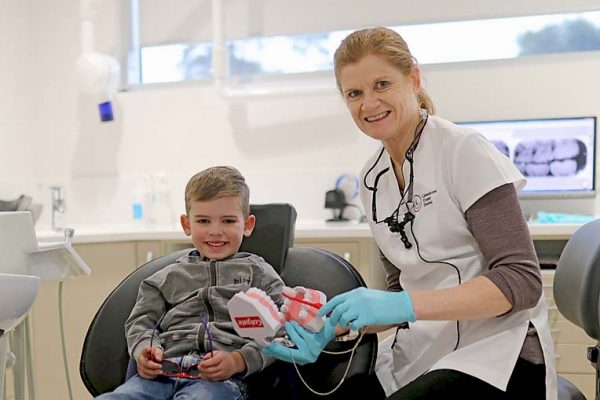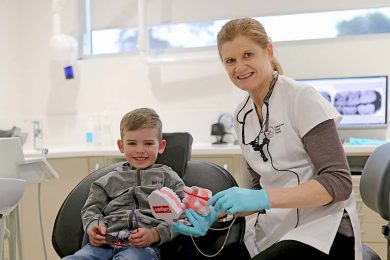
CHILDREN are believed to be consuming too much sugar, which has been significantly proven to contribute to tooth decay – the nation’s most common chronic disease.
Kicking off on Monday, Dental Health Week has highlighted the nation’s oral health is not up to scratch with only half of adults reported cleaning their teeth twice a day, while sugar consumption by both adults and children exceeds World Health Organisation guidelines.
According to the Australian Dental Association, 63pc of adults have not seen a dentist in over two years, with a massive 71pc of people only doing so because of a problem, while 11pc claimed they were too frightened to visit.
Limestone Coast Dental principal dentist Dr Helen Heaver said the risk of decay typically rose with age.
“Awareness is the number one factor and significantly contributes to poor oral health and tooth decay,” Dr Heaver said.
“Perhaps people need to become more aware of their consumption of sugar and where sugar is found in their diet.
“Maybe it is the hidden sugars people are not aware with fruit juice and processed school snacks sometimes easily perceived as healthy alternatives.”
Dr Heaver said soft drinks were also not ideal and recommended high-sugar beverages be substituted for water, especially for children.
“Poor oral health is also a high contributing factor to tooth decay for those who lack good hygiene habits,” she said.
“The Australian Institute of Health and Welfare report Australian children aged five to 10 had an average of 1.5 decayed, missing and filled deciduous teeth perhaps because they had not been taught how to brush properly.

“If people have regular check ups, their education could be improved to prevent further damage from occurring.”
Dr Heaver explained sugar was broken down by a bacteria in the mouth which produced acid.
“The acid then attacks the hard tooth structure to then cause decay or cavities,” she said.
“We all have bacteria in our mouth so we can not get away from it.”
Oral health should be a constant focus Dr Heaver added, not just during Dental Health Week.
“This year’s statement refers to the importance of maintaining good oral health and we recommend to brush, floss, follow a healthy diet and attend regular dental checks to achieve that,” she said.
“Teeth are for life, they do not heal or get replaced and once your baby teeth are lost, your permanent teeth need to be looked after.”
Australian Dental Association SA branch spokesman Dr Angelo Papageorgiou said Dental Health Week aimed to inspire individuals to look at their own oral health regimes and question whether they are caring for their teeth properly.
“Current figures show 90pc of adults have experienced some form of tooth decay,” he said.
“This disease is entirely preventable so there is still work to be done.”
Dr Papageorgiou said it was important for people to find a regular dentist to visit every six to 12 months, or as needed.
Dr Heaver reminded the public the Child Dental Benefit Schedule was available to most parents with children under the age of 18.
For more information on eligibility visit the Australian Government website.











